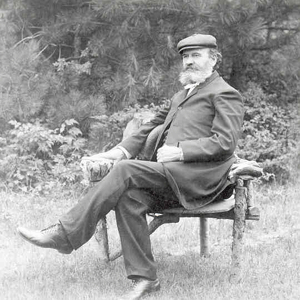A Quote by Johann Wolfgang von Goethe
For a man to achieve all that is demanded of him he must regard himself as greater than he is.
Related Quotes
To me the sole hope of human salvation lies in teaching Man to regard himself as an experiment in the realization of God, to regard his hands as God's hand, his brain as God's brain, his purpose as God's purpose. He must regard God as a helpless Longing, which longed him into existence by its desperate need for an executive organ.
Convince a man that he is an animal, that his own dignity and selfrespect are delusions, that there is no 'beyond' to aspire to, no higher potential self to achieve, and you have a slave. Let a man know he is himself, a spiritual being, that he is capable of the power of choice and has the right to aspire to greater wisdom and you have started him up a higher road.
What a man does, that he has. What has he to do with hope or fear? In himself is his might. Let him regard no good as solid but that which is in his nature, and which must grow out of him as long as he exists. The goods of fortune may come and go like summer leaves; let him scatter them on every wind as the momentary signs of his infinite productiveness.
If someone does something we disapprove of, we regard him as bad if we believe we can deter him from persisting in his conduct, but we regard him as mad if we believe we cannot. In either case, the crucial issue is our control of the other: the more we lose control over him, and the more he assumes control over himself, the more, in case of conflict, we are likely to consider him mad rather than just bad.
It is not a slight thing, gentlemen, to force a man to say what he is, or what he believes himself to be; for that supreme word of man, that single expression which he utters of and upon himself is decisive. It lays down the basis upon which all judgment of him is to be formed. From that moment all the acts of his life must correspond to the answer given by him.
One of man's important mistakes, one which must be remembered, is his illusion in regard to his I. Man such as we know him, the 'man-machine,' the man who cannot 'do,' and with whom and through whom everything 'happens,' cannot have a permanent and single I. His I changes as quickly as his thoughts, feelings and moods, and he makes a profound mistake in considering himself always one and the same person; in reality he is always a different person, not the one he was a moment ago.


































